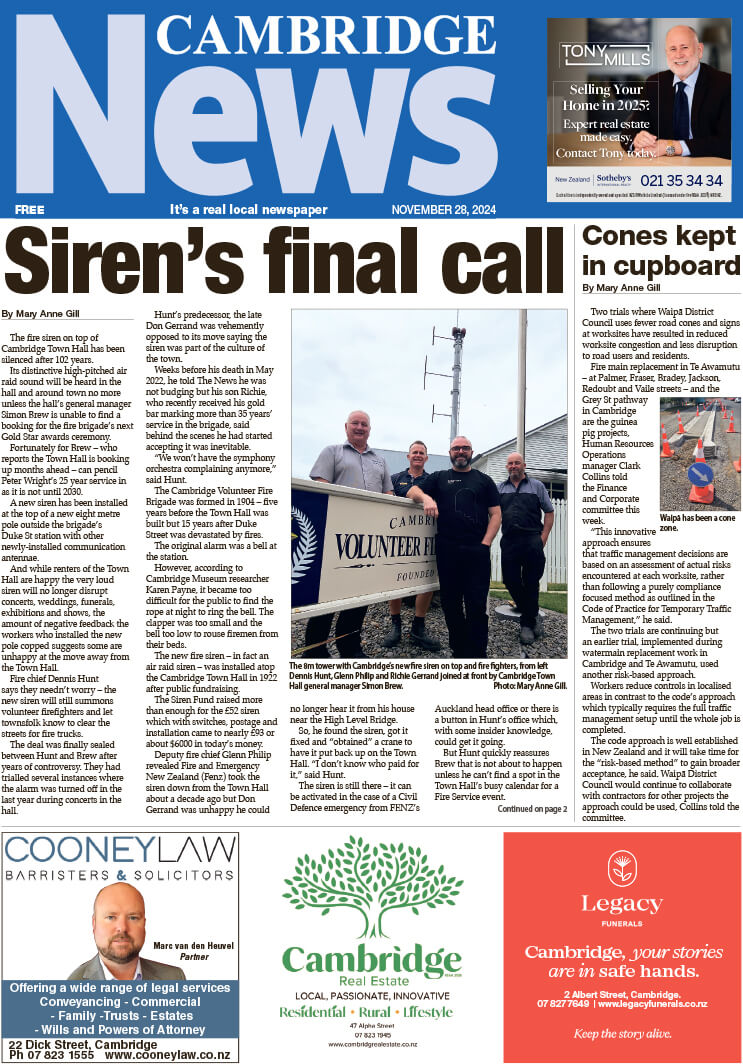The fire siren on top of Cambridge Town Hall has been silenced after 102 years.
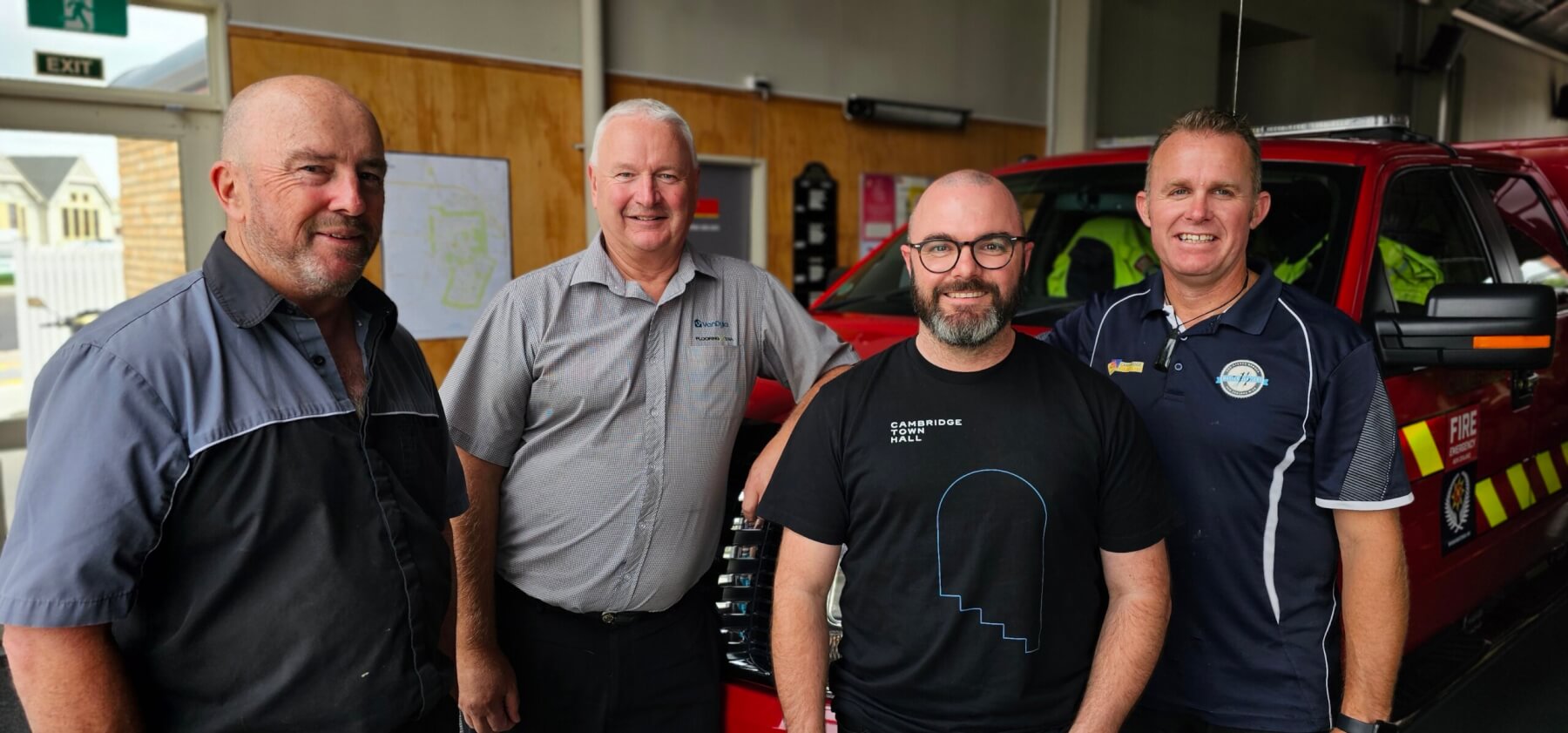
Deal sealed: from left Richie Gerrand, Dennis Hunt, Simon Brew and Glenn Philip inside Cambridge Fire Station. Photo: Mary Anne Gill.
Its distinctive high-pitched air raid sound will be heard in the hall and around town no more unless the hall’s general manager Simon Brew is unable to find a booking for the fire brigade’s next Gold Star awards ceremony.
Fortunately for Brew – who reports the Town Hall is booking up months ahead – can pencil Peter Wright’s 25 year service in as it is not until 2030.
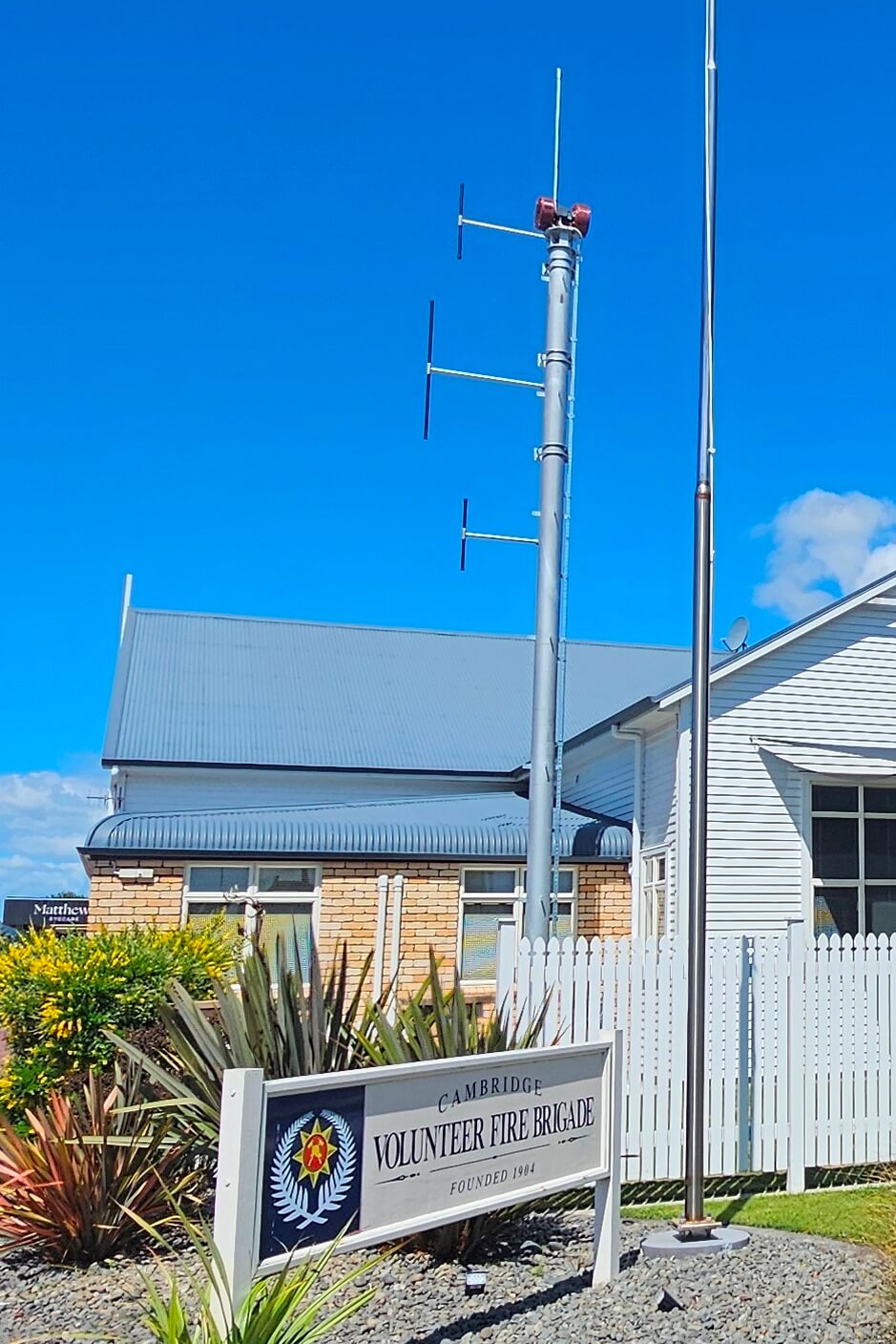
The new Cambridge Fire Siren
A new siren has been installed at the top of a new eight metre pole outside the brigade’s Duke St station with other newly-installed communication antennae.
And while renters of the Town Hall are happy the very loud siren will no longer disrupt concerts, weddings, funerals, exhibitions and shows, the amount of negative feedback the workers who installed the new pole copped suggests some are unhappy at the move away from the Town Hall.
Fire chief Dennis Hunt says they needn’t worry – the new siren will still summons volunteer firefighters and let townsfolk know to clear the streets for fire trucks.
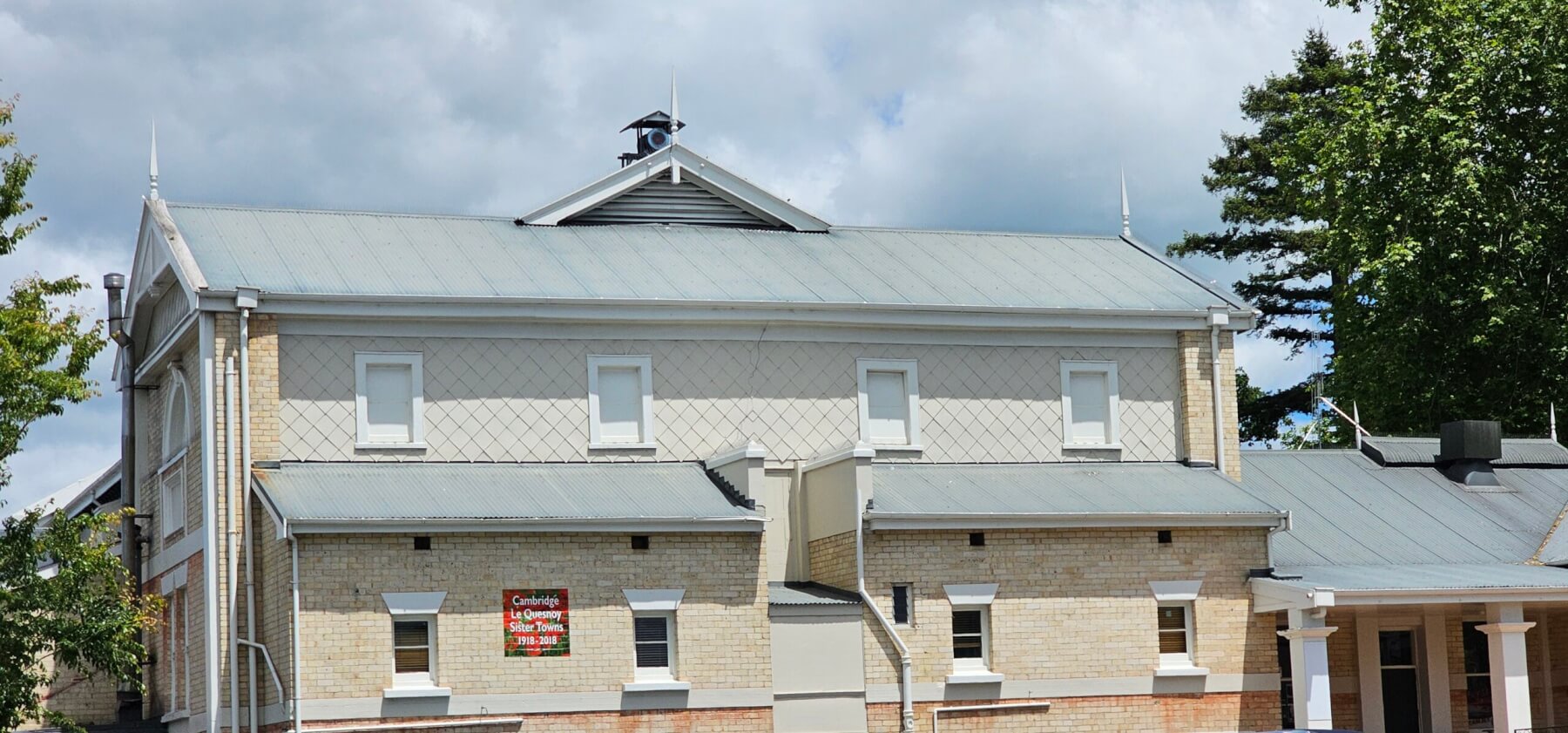
The old Cambridge Fire Siren on the Town Hall.
The deal was finally sealed between Hunt and Brew after years of controversy. They had trialled several instances where the alarm was turned off in the last year during concerts in the hall.
Hunt’s predecessor, the late Don Gerrand was vehemently opposed to its move saying the siren was part of the culture of the town.
Weeks before his death in May 2022, he told The News he was not budging but his son Richie, who recently received his gold bar marking more than 35 years’ service in the brigade, said behind the scenes he had started accepting it was inevitable.
“We won’t have the symphony orchestra complaining anymore,” said Hunt.
The Cambridge Volunteer Fire Brigade was formed in 1904 – five years before the Town Hall was built but 15 years after Duke Street was devastated by fires.
The original alarm was a bell at the station.
However, according to Cambridge Museum researcher Karen Payne, it became too difficult for the public to find the rope at night to ring the bell. The clapper was too small and the bell too low to rouse firemen from their beds.
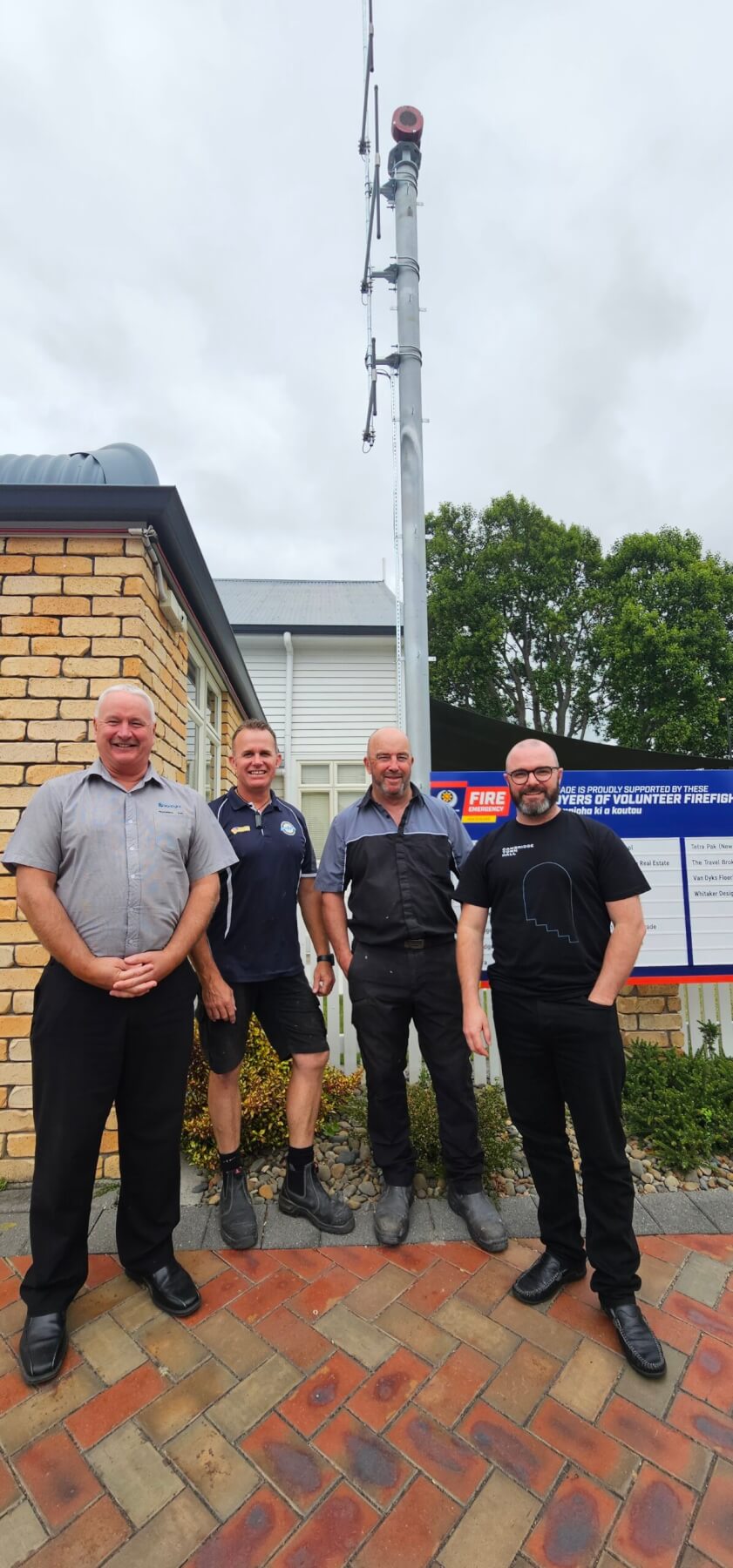
The 8m tower with Cambridge’s new fire siren on top and fire fighters, from left Dennis Hunt, Glenn Philip and Richie Gerrand joined by Cambridge Town Hall general manager Simon Brew. Photo: Mary Anne Gill.
The new fire siren – in fact an air raid siren – was installed atop the Cambridge Town Hall in 1922 after public fundraising.
The Siren Fund raised more than enough for the £52 siren which with switches, postage and installation came to nearly £93 or about $6000 in today’s money.
Deputy fire chief Glenn Philip revealed Fire and Emergency New Zealand (Fenz) took the siren down from the Town Hall about a decade ago but Don Gerrand was unhappy he could no longer hear it from his house near the High Level Bridge.
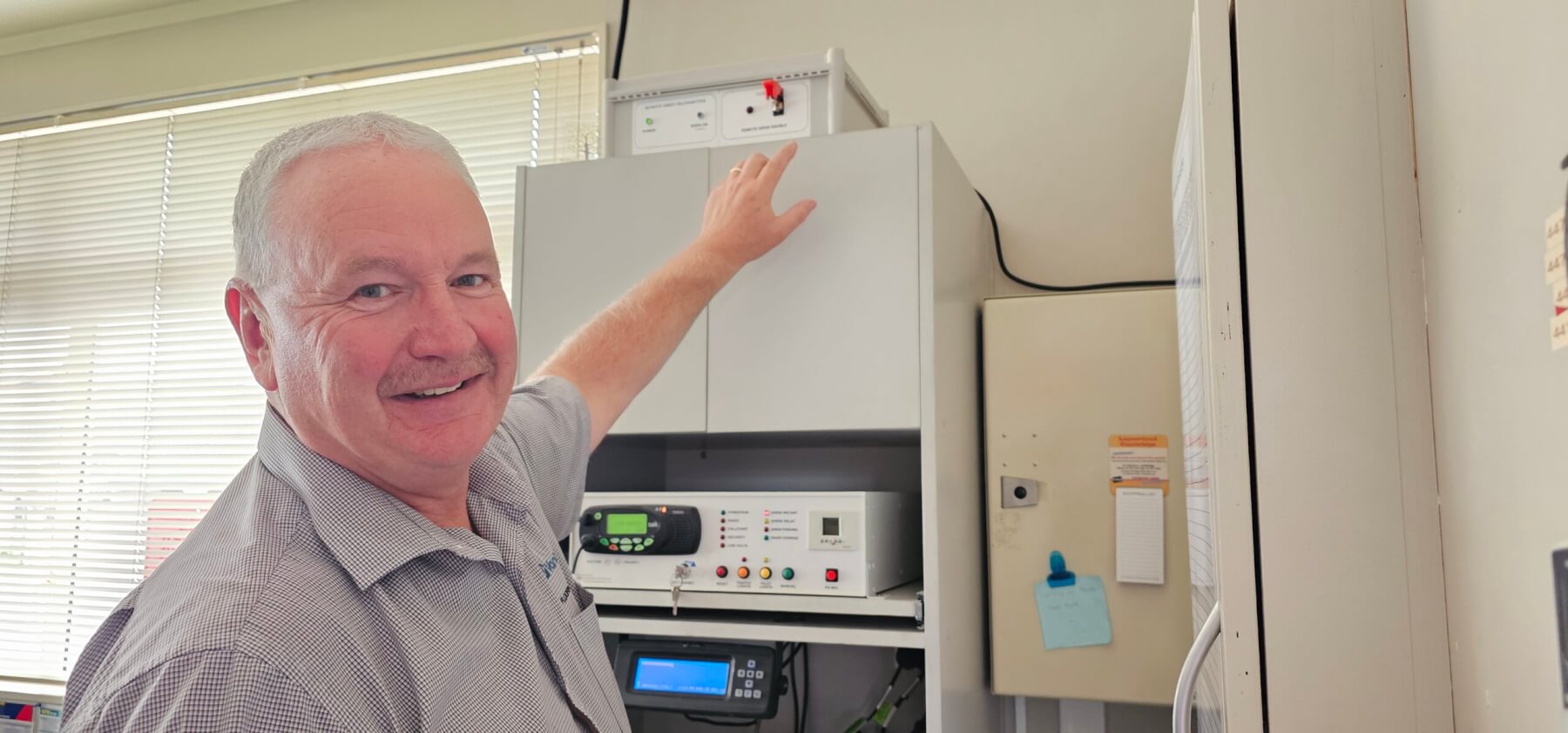
Red switch off: Cambridge Volunteer Fire Brigade chief Dennis Hunt resists the temptation to switch the Town Hall fire siren back on. Photo: Mary Anne Gill.
So, he found the siren, got it fixed and “obtained” a crane to have it put back up on the Town Hall. “I don’t know who paid for it,” said Hunt.
The siren is still there – it can be activated in the case of a Civil Defence emergency from FENZ’s Auckland head office or there is a button in Hunt’s office which, with some insider knowledge, could get it going.
But Hunt quickly reassures Brew that is not about to happen unless he can’t find a spot in the Town Hall’s busy calendar for a Fire Service event.
Meanwhile Hunt said the brigade was on the lookout for more volunteers after three people recently left the brigade, two who headed overseas and one to police college.
The brigade has 20 members but always needed more, he said, as call outs continue to increase. Cambridge – which had 359 calls in the year ended June 30 – has a higher number of motor vehicle crashes compared with most other volunteer brigades.
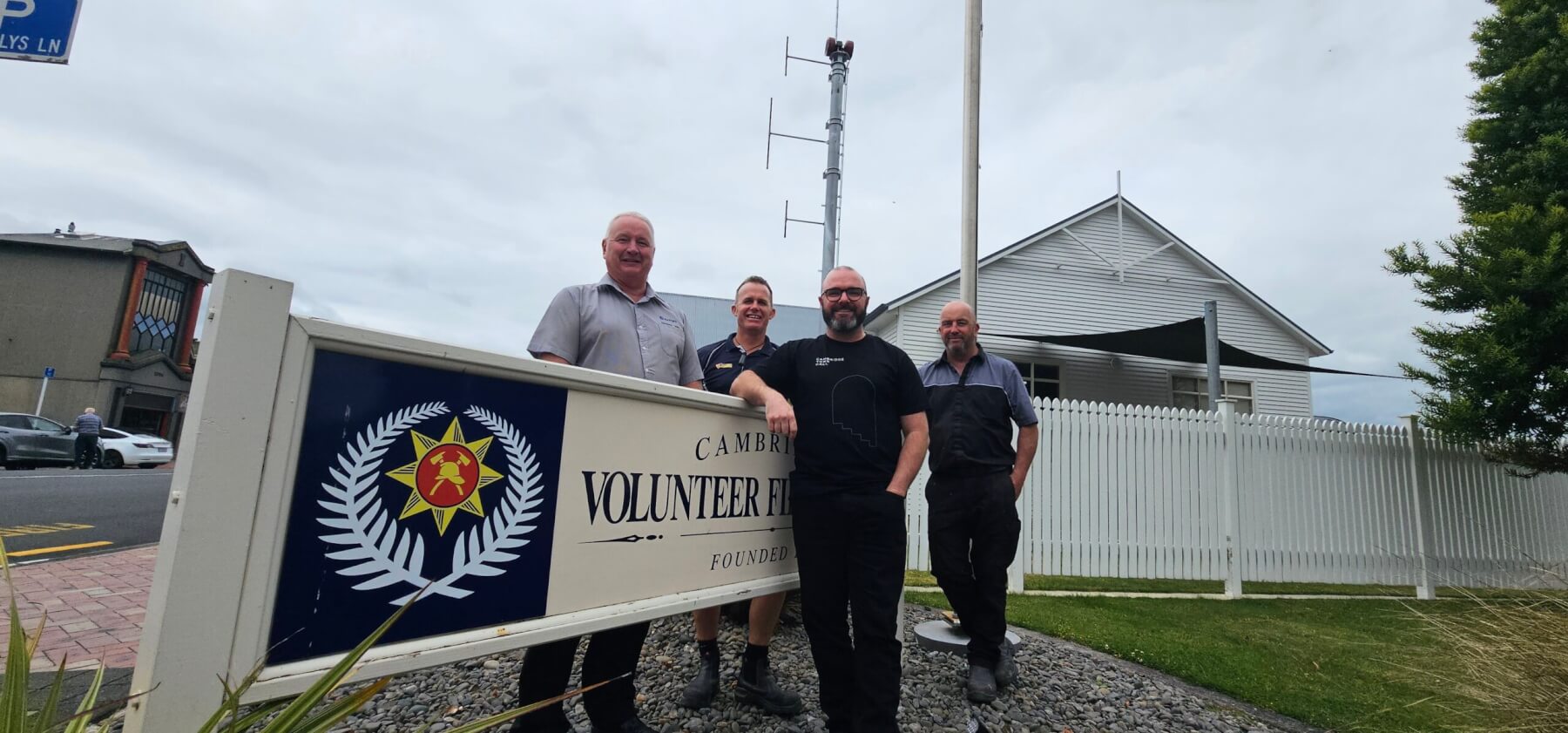
The 8m tower with Cambridge’s new fire siren on top and fire fighters, from left Dennis Hunt, Glenn Philip and Richie Gerrand joined at front by Cambridge Town Hall general manager Simon Brew. Photo: Mary Anne Gill.
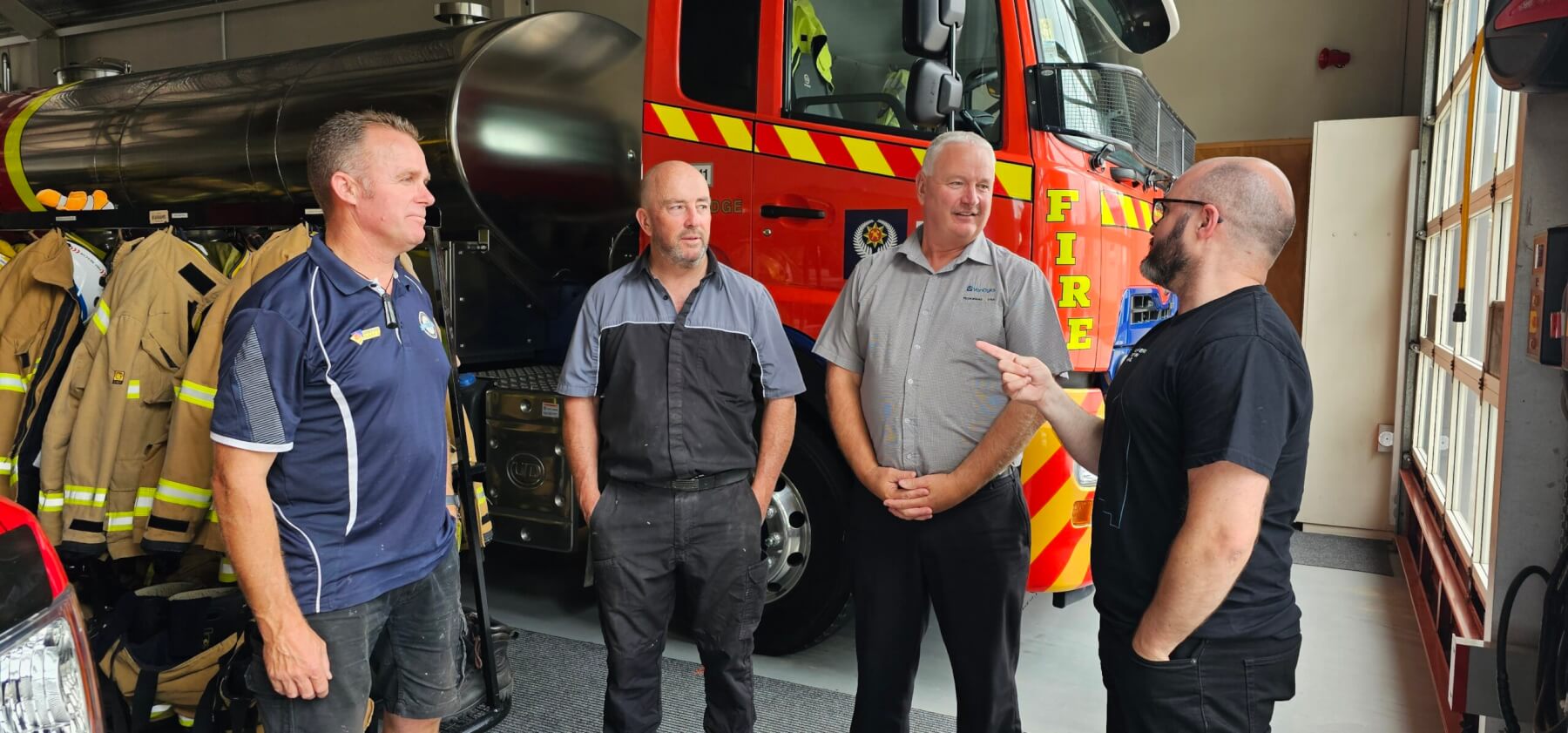
In side the Cambridge Fire Station, Town Hall general manager Simon Brew, right, shares stories about a recent event which was disrupted by the fire alarm with, from left Glenn Philip, Richie Gerrand and Dennis Hunt. Photo: Mary Anne Gill.



